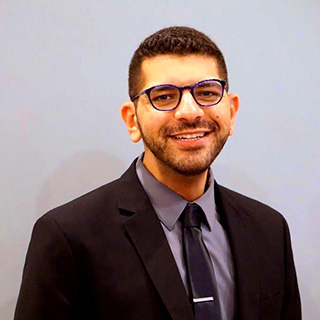Dr. Mina Attia was recently interviewed by the National Board of Certified Counselors for their newsletter article, "Trauma Counseling for LGBTQ+ Asylum Seekers."
The article sprang from Dr. Attia's studies of the experiences of LGBTQ+ people who are current or former asylum seekers. His research has been published in the Journal of LGBTQ Issues in Counseling and The Counseling Psychologist. Along with co-author Dr. Bagmi Das, he presented on the topic at the NBCC Foundation’s 2024 Bridging the Gap Symposium: Eliminating Mental Health Disparities.
The NBCC spoke to him about how counselors can best employ a trauma-informed approach to their work with this population. Dr. Attia explained that in one study they looked at the overall experiences of trauma and adjustment of LGBTQ+ asylum seekers, and in the other they were looking at the experiences of post-traumatic growth and resilience. The questions that remained after their initial exploration were, "What is the resilience that this population displays and what are the factors that go into why these folks are so resilient and make it on the other end?"
A few highlights of the article that offer tips to counselors are:
"One important thing is knowing resources that you can connect folks to. A lot of times, if folks are new to the country, they're trying to figure out, what are some LGBTQ plus friendly services that are around? They need services for legal assistance. They need services for housing. They need services for mental health and physical health. So, being connected and having a list of resources of affirming services for this population will also be really important."
A trauma-informed approach is necessary for a counselor working with the LGBTQ+ asylum-seeker population. "They experience trauma premigration, during migration with fleeing and the journey, and then they experience trauma postmigration when they're getting resettled and going through the asylum process. With these multiple layers of trauma, for counselors to do this work correctly, they have to do it from a trauma-informed lens."


